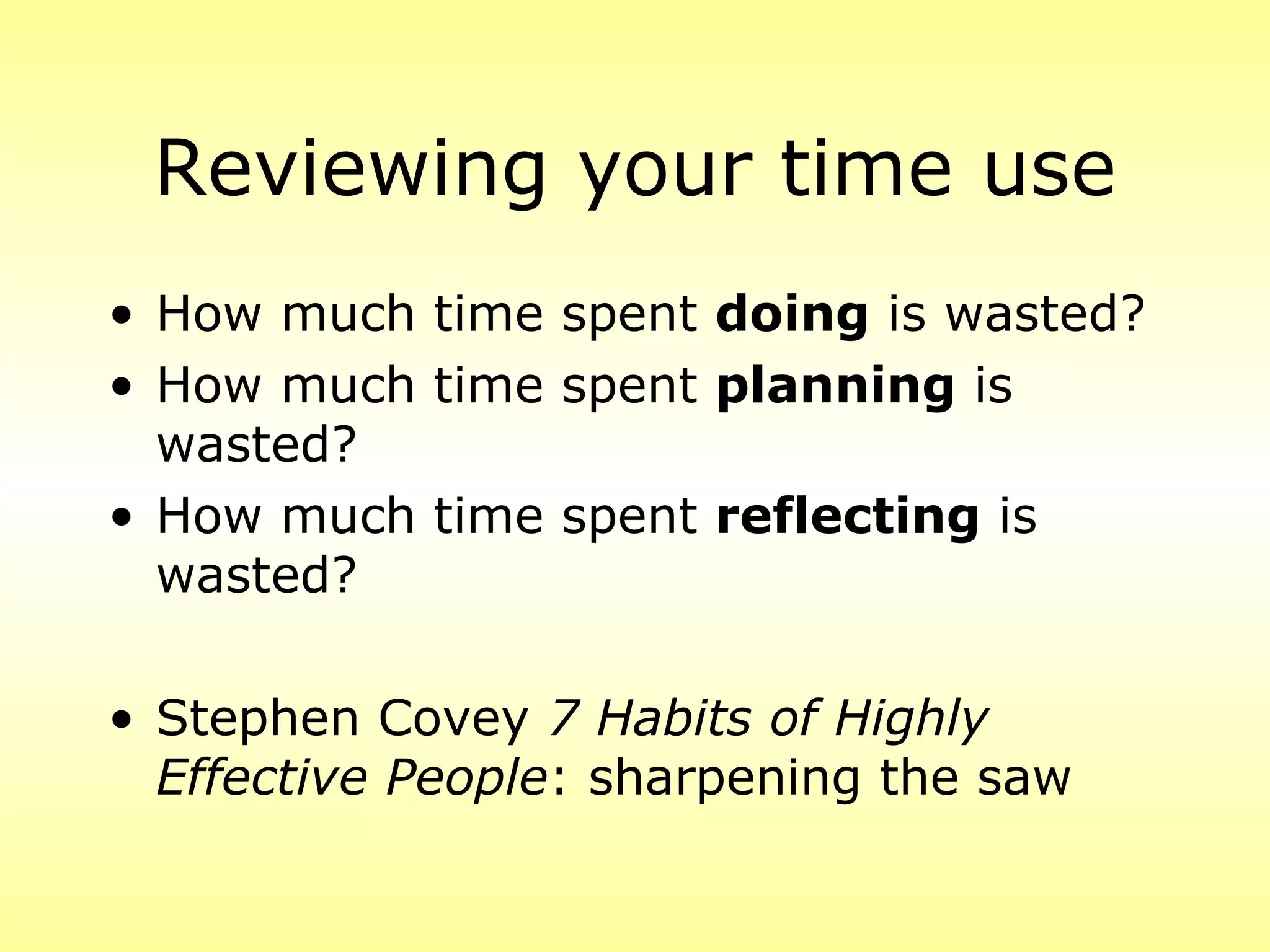This document discusses tools for critical reflection. It begins with exercises to understand how time is allocated between planning, doing, and reflecting on activities. Three common time allocation types - Type A focuses on the present with little planning or reflection, Type B balances planning and doing, and Type C balances all three. The document then discusses reasons people don't reflect enough and techniques to build reflection into a routine like journaling or using a notebook. It also discusses using critical friends and free writing to support critical reflection. The overall message is that critical reflection is important for self-awareness and learning but many don't spend enough time on it.







![Critical thinking and critical reflection
Critical thinking
“active interpretation and evaluation of
observations” awareness of one’s own thoughts
and behaviour [‘meta awareness’]
Present focus
Critical reflection
purposeful thought about experience to
understand and learn for the future
Past / future focus](https://image.slidesharecdn.com/criticalreflection2012-120627021910-phpapp02/75/Critical-reflection-2012-8-2048.jpg)










